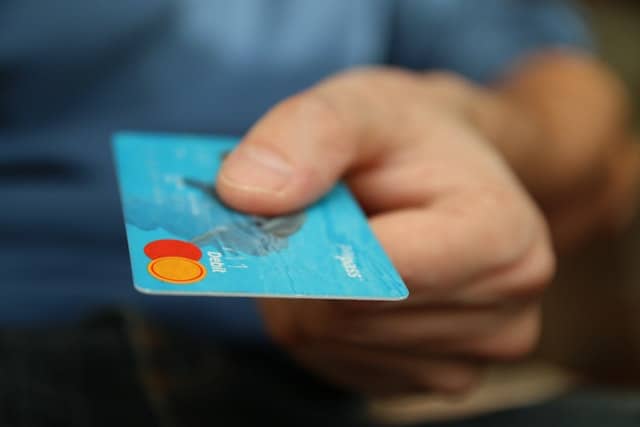A credit card is a line of credit which allows you to spend borrowed money up to a certain limit each month. This limit is called a credit limit, and is a limit – not a target! The credit is provided by your credit card provider, and you will have to pay back the money you spend, plus interest, once a month, until it’s paid off.
In addition to paying back what you have borrowed, you will also be charged interest of around 16.13%.
Credit cards are an alternative means of funding for those who don’t want to take out a payday loan, cash advance or ask a loved one for support.
Credit cards are generally quite easy to be approved for because the credit limit can be adjusted according to the borrower’s risk and there are strong collection measures in place by providers.
Key Points:
- A credit card is a line of credit which you must pay back in addition to any interest applied to the loan.
- Credit limits are set by lenders based upon your financial past, current situation, and how many cards you have, alongside other factors.
- The average interest on a US credit card is roughly 16.13%, but many creditors offer 0% interest trial periods.
- Failing to pay off your credit card debt can result in additional fees and damage to your credit score, making future borrowing even more difficult.

Apply for a credit card online after considering different alternatives and comparing different cards.
How Much Credit Can I Get?
A credit limit refers to how much you are able to spend on a given credit card and in 2020, the average limit was $30,000 annually.
If your creditor sets you a $1000 monthly limit, then you have $1000 of theirs to spend for the month. You will need to pay that back, in addition to interest. Let’s say the interest was 16%, then you would owe $160 in addition to the $1000.
Your credit limit is set by your lender. They will provide you with a quantity of credit that is high enough to entice you to use their service, but low enough that you will be able to keep on top of repayments and not be hit by unmanageable debt.
How Do I Get A Credit Card?
There are plenty of options out there, and so much information available online. Using comparison websites and informative sites like NerdWallet can help you compare interest and maximum lines of credits, and help you understand which option is best for you.
You could also head into a bank branch near you, or contact a firm via telephone or email.
Can I Get An Interest Free Credit Card?
Yes, 0% interest applies to many introductory offers, and credit cards then bear an average interest rate of 16.13%. For example, the Citi Simplicity Card and the Wells Fargo Reflect Card offer interest free credit for 21 months. There are more firms that offer up to 15 months interest-free, including American Express and Bank of America.
How Is My Credit Limit Set?
Your credit limit will be set according to a few factors:
- Your Income – The more you earn, the higher your limit is likely to be. This is because your lender can see that you will have income to pay off your debt.
- Your Credit History – This shows a creditor if you have reliably paid off debts in the past. The higher your score, the likelier that a creditor will be willing to give you a generous limit, and vice versa. If you have persistently defaulted on payments, you will be offered a lower – if any – limit.
- Limits On Other Credit Cards – If you have many credit cards with large limits, your new creditor will want to offer you a small limit. This is because you are already stretched with debt, and they don’t want to lend to someone who may struggle to pay them back. If they do, they may offer you a very low limit.
What If I Exceed My Limit?
You may find that when you try to put a transaction through, your card is declined. This is because you have no credit left to spend.
You could be charged additional fees if you go over your limit. This is on top of the interest on your credit, making borrowing that much more expensive.
This may also damage your credit record, lowering your score, and inciting future trouble when trying to borrow money (see also: Bad Credit Loans and Can I Get a Loan With No Credit Check). This will be the gradual result of exceeding your limit time and time again. Nevertheless, you should carefully mind how much you are spending to protect your finances, for both now and the future.

Credit limits are limits, not targets. Spend frugally, especially when spending costs you in interest repayments.
I Don’t Want A Credit Card. What Else Could I Do?
Payday Loans
Borrowed by 12 million Americans annually, these are short-term, high-interest and speedily available loans. You could receive your funds within one business day of applying, and it is easy to get your hands on one, especially if you apply through a broker.
Cash Advances
Cash advances loans are essentially early paychecks provided by an employer. If you need cash, ask your employer what work-based support can be provided to you.
Loan From A Loved One
But be sure that you can pay them back. Many of those who have lent cash to a loved one have reported their relationship spiralling as a result. However, these are usually more flexible and bear no-to-low cost of borrowing.

